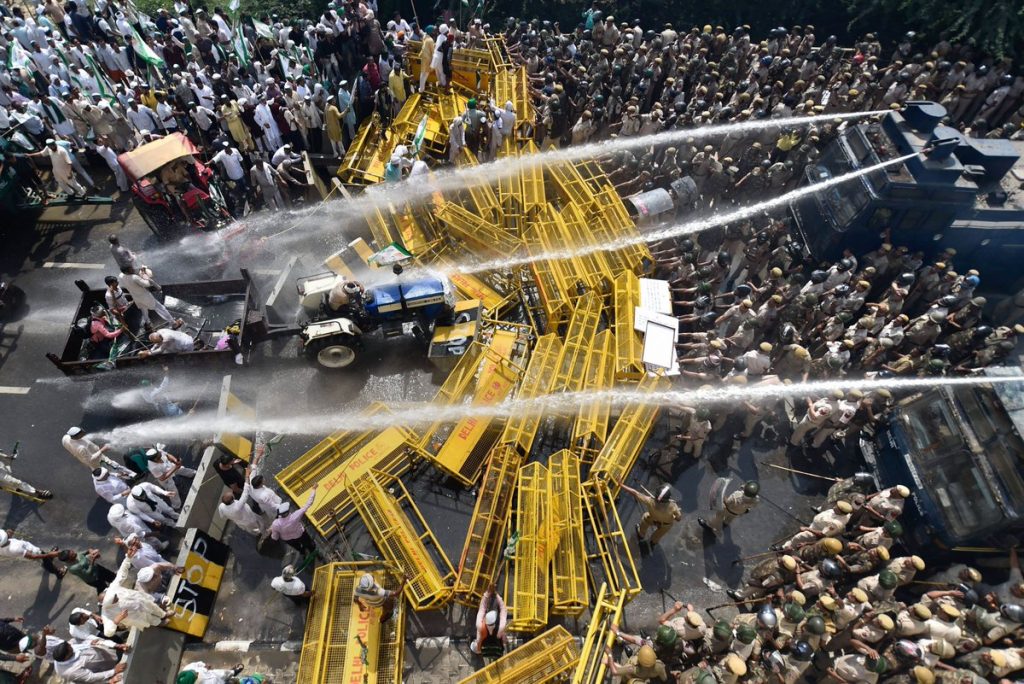Farmers were brought to a boil Tuesday as they were blocked on the borders of the National Capital Region. These farmers were part of a 10-day march that started from Haridwar and was being led by the Bharatiya Kisan Union. Police resorted to baton charge, trained water cannons at them and fired tear gas shells into the roughly 20,000 strong mob to disperse them. Security had been tightened at the border and section 144 was imposed in parts of the national capital to prevent untoward incidents. It goes without saying that several farmers were injured in the action. Of course, the meeting that farmer leaders held with Home Minister Rajnath Singh gave some positive results as about seven of the 15 demands that they placed before him have been reported to be accepted. The question that remains is whether the assurances will translate into action. There are multiple factors that are bound to come in the way of the government. If one were to consider factors from the agricultural perspective to begin with, the IMD report is a worrying factor. Although it was initially believed that the country would receive an above-normal monsoon this year, what has happened is that the rainfall has fallen short of even the normal. According to the IMD report, the monsoon this year has been 9 per cent deficient. Manipur (-59 per cent), Meghalaya (-41 per cent), Arunachal Pradesh (-32 per cent), Gujarat and Jharkhand (-28 per cent each), Bihar (-25 per cent), Tripura (-21 per cent) and West Bengal (-20 per cent) were the top rain deficient states. By contrast, places such as Kerala received excessive rainfall, causing widespread damage to agriculture. The entire farming cycle has gone for a toss in these places. The fall in production resulting from deficient rainfall is bound to translate into higher market prices for agricultural produce. Food inflation is bound to affect people across the board and will result in widespread disillusionment. At the same time the price of crude oil in the international market is rising, which again is bound to reflect in prices of goods ranging from salt to supersonic jet. Also, with the US Federal Reserve raising interest rates, the outflow of foreign funds is also poised to grow. And with the US-China trade war playing out in the broader international arena, India’s export basket is bound to shrink. Under these circumstances, it is unclear how the government will be able to meet the demands of the farmers, too. There is no denying the fact that farmers’ needs must be protected. But the government has painted itself into a corner by virtue of measures that no longer appear robust in hindsight. The troubles that farmers in the country face cannot be wished away. They need to be addressed effectively as it is the powder keg on which the economy rests. Irrespective of who lights the fuse the powder can spell doom. It is still not too late for the government to wake up and smell the coffee. It has to address the problems of farmers first so that it can keep the whole of economy from tumbling like a pack of cards.
Farmers rising

Related Content
Bloodline
By
Post News Network
July 8, 2025
Acknowledge Failure
By
Post News Network
July 7, 2025
Politics of Philosophy
By
Post News Network
July 6, 2025
India’s Spy Shift
By
Post News Network
July 5, 2025
Hungary Lessons
By
Post News Network
July 2, 2025
New Democratic Face
By
Post News Network
July 1, 2025